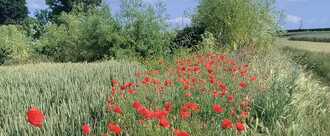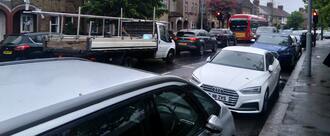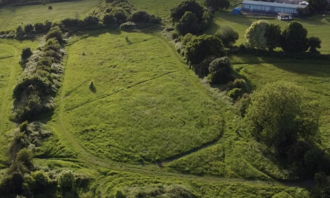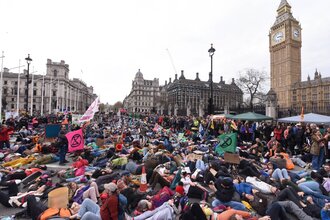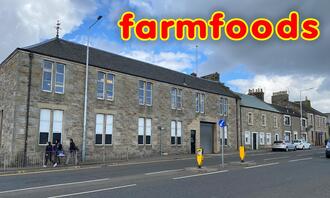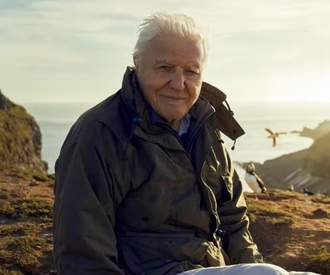-
Save Ham Farm - Say NO to 250 houses on a Greenfield site and crucial wildlife habitatSave Ham Farm is a voluntary group that has been formed to protest against a development of 250 houses on Ham Farm, a crucial piece of land in the beautiful, mediaeval market town of Faversham in Kent, the Garden of England. Please sign our petition to Michael Gove, as Secretary of State for Levelling Up, Housing and Communities, asking him to intervene and protect Ham Farm from this housing development. Faversham has already been inundated with housing developments all around, which are rapidly changing the character of this peaceful, historic town. Swale Borough Council Planning Committee is considering yet another development of 250 houses to be built on Ham Farm, a protected green field site of existing farmland and wildlife habitat, which has never been designated as potential land for houses. Ham Farm development would have a detrimental impact on the local community and environment. It would destroy valuable green space and wildlife habitats, increase traffic congestion, and put a strain on local services such as schools and healthcare. Ham Farm is important to the tourist industry due to its close proximity to the old town centre and is a valuable recreational resource to the local community. The Ham Farm site is contaminated by waste products from its previous use as brick earth extraction and brick works. There has been no soil investigation and planning wrongly assumes there is no contamination. This could exacerbate drainage issues and add to the overflow of contaminated water into the creek. According to the RSPB, wildlife throughout the country is being threatened by the erosion of available habitat. Ham Farm is an active farm, mixed arable and cattle, offering precious sanctuary to wildlife, and is especially important for nesting skylarks and yellow wagtails, and winter roosting for lapwings. It is part of a corridor for birds migrating along the East Coast of England. The erosion of wild life habitat surrounding this area through housing developments has made it all the more crucial to conserve what we have left. We should be protecting it rather than destroying it. Please add your signature to this Petition if you believe that we should prioritise preserving our natural environment over a short-term gain from a housing development in an unsuitable location. Save Ham Farm1,071 of 2,000 SignaturesCreated by Elizabeth Arnott
-
Say NO to Battery Storage Development!We have come together as a community to try and stop this development. The Potential Issues This Will Cause: RISK OF EXPLOSION An explosion could cause a massive toxic cloud which is fatal to all life in surrounding area! ENVIRONMENTAL ISSUES The development will eradicate protected green lands, produce noise pollution and destroy local wildlife! NO BENEFITS TO THE COMMUNITY There will be no new jobs to support the build and no cheaper tariffs to the community. Also, house prices have the potential to drop! POTENTIAL EXPANSION Once the batteries are setup, surrounding areas will be potentially developed, furthering the risks!468 of 500 SignaturesCreated by Alex Stockton
-
Safe streets and clean air outside Whittingham PrimaryTraffic Calming Measures: Implementing speed bumps, signage, temporary bollards and other traffic calming measures will slow down vehicles, discouraging reckless driving and creating a safer environment for everyone. "Whittingham parents & residents have raised concerns about unsafe driving, parking and idling. Despite the measures we have already put in place to keep our children safe, this problem persists. As a school we welcome the support of the Healthy Streets for Higham Hill & Lloyd Park initiative. We want to work together to create a safe environment for all our children and reduce the risk of accidents. With yours an their support we know that any changes we can make will not only protect the lives of our pupils but also increase the number of families travelling to school sustainably by walking or cycling. This can only help to increase the already strong sense of community at Whittingham and promote cooperation and consideration between all road users. - Miss Thompson, Principal These measures will provide the following benefits: Enhanced Safety: Our children will be protected from accidents and injuries caused by dangerous driving and obstructive parking. Reduced negative impart on health: Improving poor air quality caused by idling vehicles outside the school gates at the busiest periods. Encouraging Healthy Habits: By creating a safe environment, more families will be encouraged to choose walking or cycling as a means of transportation, promoting a healthier and environmentally-friendly lifestyle. We kindly request your support by signing this petition to demonstrate the urgent need for these safety measures. Together, we can make a difference and ensure the safety and well-being of our children.219 of 300 SignaturesCreated by Dan Geneen
-
SNCI sites and the Bristol Development PlanBristol Tree Forum has presented compelling evidence both to the Mayor’s office and to Council officers that the local plan map is incorrect, yet the administration declines to correct it, even though it has the power to do so by a simple resolution of Full Council. We have even drafted a resolution to enable this to happen. Here it is: Draft Motion to Full Council 11 July 2023 This council notes that, when the Site Allocations and Development Policies was adopted in July 2014, the following designated Sites of Nature Conservation Interest (SNCI - code ‘BC’) had Site Allocations (BSA) placed on them: 1. BC1 BSA1110 - The Hangar Site and Filwood Park, north of Hengrove Way. 2. BC16 BSA1201 - Land at Broom Hill, Brislington. 3. BC49 BSA1305 - Land to the north-west of Vale Lane, Bedminster Down. 4. BC54 BSA1124 - Kingswear Road, Torpoint Road and Haldon Close. 5. BC64 BSA1205 - Wicklea and adjacent land, St Anne’s / Broom Hill, nr Brislington. 6. BC80 BSA1108 – Land at Novers Hill, east of Hartcliffe Way and west of Novers Lane / Novers Hill. 7. BC80 BSA1114 – Land at Novers Hill, adjacent to industrial units. 8. BC80 BSA1119 – Land to east of Hartcliffe Way, south of the Waste Depot. 9. BC108 BSA0402 - Bonnington Walk former allotments site, Lockleaze. The Site Allocations and Development Policies Map (the Map) was published at the same time. This unilaterally altered the boundaries of the SNCIs above so that the areas within them which were overlapped by these BSAs were excluded, even though their boundaries had not been changed by the Local Sites partnership, the only body authorised to alter or de-designate SNCIs. This council believes that these changes to the Map were made in error and that the Map, which does not form part of the Bristol Development Plan, now needs to be corrected to show the true boundaries of the SNCIs affected. This council resolves to correct the Map to show the correct boundaries of the SNCIs affected. All that the Council needs to do is pass this resolution and then instruct officers to correct the local plan map. We call on Bristol City Council to take its commitments to nature conservation seriously and amend the local plan map.1,632 of 2,000 SignaturesCreated by Mark CD Ashdown - Chair, The Bristol Tree Forum
-
We want carbon footprint labelling on all goods and servicesCyclone Idai affected Zimbabwe, causing a massive landslide in the town of Chimanimani. The next morning, Michelle Chipare discovered that her two-year-old daughter Brenda had died in the disaster. Climate-related disasters not only cause immediate devastation, they pose a long-term threat to the livelihoods of Zimbabweans like Michelle and Brenda, and many around the world. The government will not take any action unless there is a lot of public support, so we would really appreciate your support. Carbon footprint labelling would involve indicating on products and services how many tonnes of CO2 in total were produced in production, transport and use. The company providing the product would be responsible for the labelling, with third party verification. This not a new idea but implementation has not been standardised or mandated. Pursuing such carbon footprint labelling legislation would help to reduce footprints, reduce the CO2 produced, and reduce the severity of the climate disasters we are already seeing and that we will otherwise see more and more. Carbon footprint labelling will support the understanding of carbon footprinting in schools. Pupils and teachers will be empowered to change their behaviour, schools will know how to and want to tackle their carbon footprints, and the knowledge will be passed on to others. Like most people, I love nature. As greenhouse gas emissions remain stubbornly high, I live in fear of the consequences of climate change that will befall my grandchildren. Climate change is projected to force a ½ billion people to migrate if China floods or suffers a drought, both of which are likely if emissions are not reduced drastically as soon. Many of us fear the conflicts that may follow human displacement on such a scale. The ongoing conflicts in Sudan and Syria at present are exacerbated and partly caused by scarcity of vital resources brought about by climate change, showing that these fears are already manifesting. 80% of us are extremely anxious about the continuing deterioration of the climate. Surveys indicate people think the Government is not doing enough to fight the climate war, and 90% of us want more action.23 of 100 SignaturesCreated by david kinshuck
-
Rescue Our RiversWhilst leaders across the political parties are playing political games and shouting each other down in the corridors of power, our rivers are dying. Our rivers are on the brink of collapse plagued by a toxic cocktail of sewage, agricultural and chemical pollution. Give our rivers a voice. Sign now and join the mighty wave of people urgently calling for political leaders to act quickly and ambitiously to rescue our rivers. River Action, supported by over fifty organisations, are calling on political leaders to rescue Britain’s rivers for nature and people by: 1. Ending sewage pollution 2. Stopping agriculture polluting our rivers 3. Preventing harmful chemicals at source 4. Securing water supply for everyone 5. Bringing nature back from the brink 6. Reforming planning rules and prompting natural solutions 7. Protecting river habitats and wildlife 8. Monitoring pollution of all rivers 9. Inspecting polluters and enforcing the law 10. Working together to restore our rivers We call for Governments and political leaders to act now, and to act boldly, to rescue our rivers for nature and people. Join us by signing today and help the babble of voices become a flood. Our rivers are in crisis. Every single river in England is polluted beyond legal limits, and the rest of the UK’s rivers are also in trouble. Our rivers are not fit to swim or play in, our wildlife is fast disappearing and freshwater is becoming more scarce in the face of the climate emergency. We need to see this crisis prioritised and fixed as a matter of urgency, but the current Government’s freshwater strategy is failing our rivers. They are not treating this as the emergency that it is. The situation is scary but we have the solutions. The Charter for Rivers, supported by over fifty organisations including The National Trust, The Wildlife Trusts, WWF, Soil Association, The Rivers Trust, Angling Trust and many more, sets out ten ambitious but achievable actions which would restore our rivers to health by the end of this decade. Find out more on the River Action website109,794 of 200,000 SignaturesCreated by Amy Slack
-
Protect and Restore BiodiversityOur natural world is in crisis. Recent rates of extinction are hundreds of times greater than in pre-human times, and growing. About one million animal and plant species are now threatened with extinction if we don’t act fast. More details can be found in this fact pack from Scientists for XR: https://xrb.link/mM4wM67Gf6 Please also support the Stop Ecocide International campaign: https://www.stopecocide.earth/ And the People's Plan For Nature: https://peoplesplanfornature.org/ Even if we reach zero carbon, continued growth in consumption, habitat destruction and pollution, will lead to ecological collapse. We therefore demand the following: MAKE ECOCIDE A CRIME The government must make ecocide (the mass damage and destruction of the natural living world) a crime in the UK, and support all efforts to make it an international crime. LET THE PEOPLE DECIDE ON THE ECOLOGICAL CRISIS To ensure a fair transition to a society that protects and restores nature, the government must follow the recommendations of a Citizens’ Assembly on the ecological crisis. NO BONFIRE OF EU ECO LAW The Retained EU Law (Revocation and Reform) Bill threatens to remove a vast amount of our environmental laws. The government must not allow any reduction in our environmental standards or protections.537 of 600 SignaturesCreated by Exeter XR Biodiversity

-
BAN PLASTIC GRASS AND OUTDOOR PLANTSOur local environment effects us on every level. When we hear the birdsong in the morning it is because there is natural grass where those birds can dig for worms and forage for insects in order to survive. People are replacing their laws with plastic grass and using outdoor plastic plants. We have already lost so much of our gardens to driveways and now there is an upsurge of replacing nature with plastic. This is detrimental to us all and to the irreplaceable cycle of wildlife around us. Please back the petition to ban these products.11 of 100 SignaturesCreated by Diana Sheldon
-
Stop the Demolition of the Victoria Linen Works KirkcaldyThe Victoria Linen Works building on Clair Street, Scotland’s last surviving linen factory, is a testament to Kirkcaldy and Fife’s industrial heritage. Now it's to be destroyed for a cut and paste Farmfoods Store! Generations of locals were employed there, and many gave long-service to a company with a paternal approach to its workforce. Their hard work and memories are to be erased with the wreckers demolition ball, lost forever and replaced by nothing. Stop the demolition and instead redevelop and retain the building. Farmfoods or any other store would then have a more prominent standing and reputation within the town along with the retail value of the building being higher as well as the surrounding neighbourhood. The destruction is completely short sighted and a complete loss to everyone. Don't destroy, renovate and grow.1,043 of 2,000 SignaturesCreated by Steve Kirkcaldy
-
Wantonly killing trees is ArborcideOur survival on a human friendly planet partly depends on trees. Trees are vital contributors to global decarbonisation, as in the daytime they suck CO2 out of the air and produce Oxygen and vital sugars, which overcompensates for their respiration at night to reverse the process. And there are billions on the planet. Recently it has been discovered that they are extensively connected underground through the fungal mycelium that can transmit information as chemical products, to form a connected network. Trees have always been important to us for our own purposes , in manufacture and food production, and also in providing a calming and refreshing environment in streets, parks and wild places. So it is all the more appalling that institutional vandals cut them down. In Sheffield and Plymouth within recently, large areas of mature trees have been destroyed in the city centres. I have visited Plymouth last year and found it very run down and neglected, but the saving feature was Armada Way running down to the centre, a wide boulevard with a central area of urban woodland, grasses and plants left to nature, with large mature trees. The trees have since been destroyed and it is likely the wild area will be filled with rubbish or removed completely for yet more traffic. In both these cities the vandalism was carried out by the Council, against strong popular opinion, and secretively at night to avoid detection. No reasons have been given in either case. This is an appalling misbehaviour of democratic bodies. Councils do have Tree Protection Orders for certain varieties of trees, to prevent property owners from removing them. They can be over-ruled by planning applications and in public areas they may be ignored by the same councils. As the examples show, councils and their agents seem impervious to the law. So, there should be legislation by a criminal statute, to ensure the protection of trees, so that trees are given rights appropriate to living beings like animals and persons rather than pieces of property, because their importance seems unappreciated by the uneducated.6 of 100 SignaturesCreated by Richard Symonds

-
BBC muzzles David AttenboroughThe episode which features conservation and the challenges faced and features some of the destruction of nature in Britain will receive a limited showing. This is due to political pressure, it's alleged. If you signed for Gary Lineker can you sign for those who are truly without a voice? We can make sure that the whole series of 'Wild Isles' gets an airing by signing this petition to the Director General of the BBC.16 of 100 SignaturesCreated by Christine Richardson
-
The BBC should broadcast Sir David Attenborough's Wild Isles episode on environmental destruction.We must face up to the forces which are destroying our natural environment if we are to save and preserve it for future generations.18 of 100 SignaturesCreated by Neil Bailey
Hello! We use cookies to improve your experience by providing insights into how the site is being used. Find out more.
